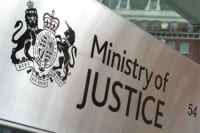Brexit and Environmental Law
By Richard B Macrory, on 16 February 2017
The House of Lords European Union Committee published its report “Brexit: environment and climate change” on February 14. The wide-ranging report gives a valuable overview of policy and legal challenges that will emerge over the next few years. It notes:
“Policy stability will be crit ical during the process of, and in the immediate aftermath of, withdrawing from the EU to avoid the emergence of legislative gaps and avoidable uncertainties in the sphere of environmental protection. Once the UK has withdrawn from the EU, environment legislation and policy will be more vulnerable to short term and less predictable changes at a domestic level”.
ical during the process of, and in the immediate aftermath of, withdrawing from the EU to avoid the emergence of legislative gaps and avoidable uncertainties in the sphere of environmental protection. Once the UK has withdrawn from the EU, environment legislation and policy will be more vulnerable to short term and less predictable changes at a domestic level”.
Professor Maria Lee, director of the Centre, and Professor Richard Macrory gave oral evidence to the Committee at the end of last year and their views feature prominently in the report.
Brexit-Environment-Climate-Change-Written-Oral-Evidence-Volume 2
 Close
Close






